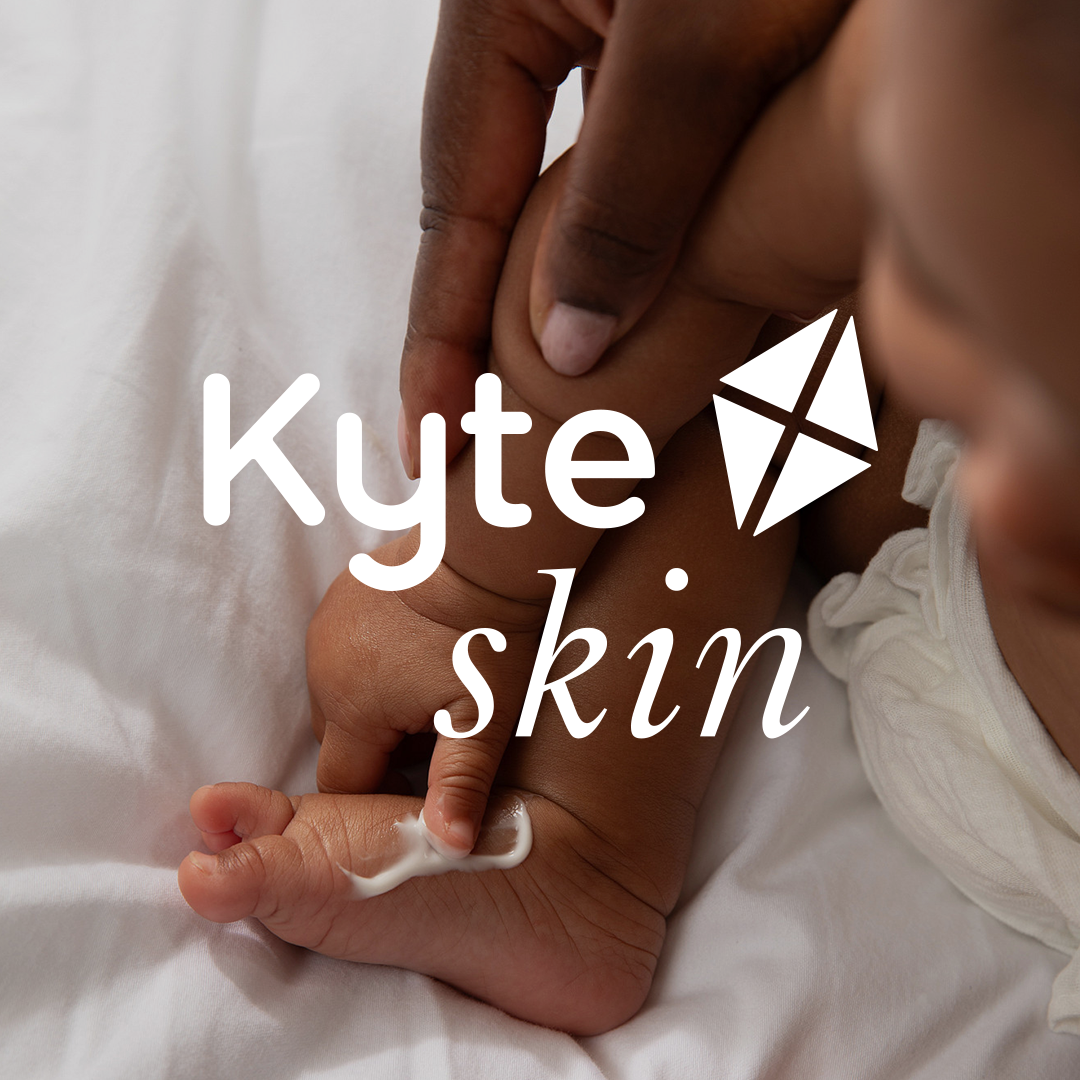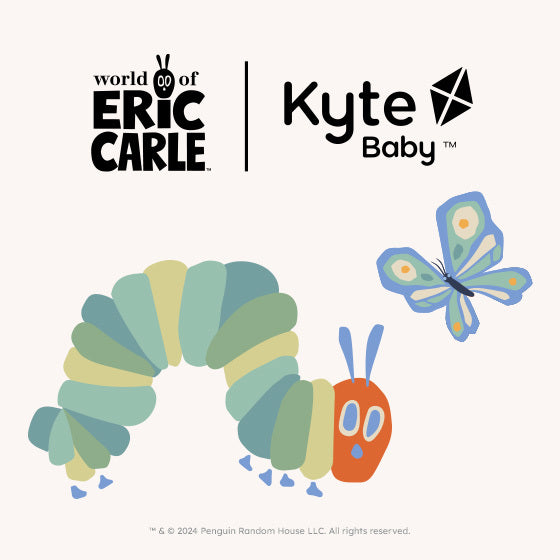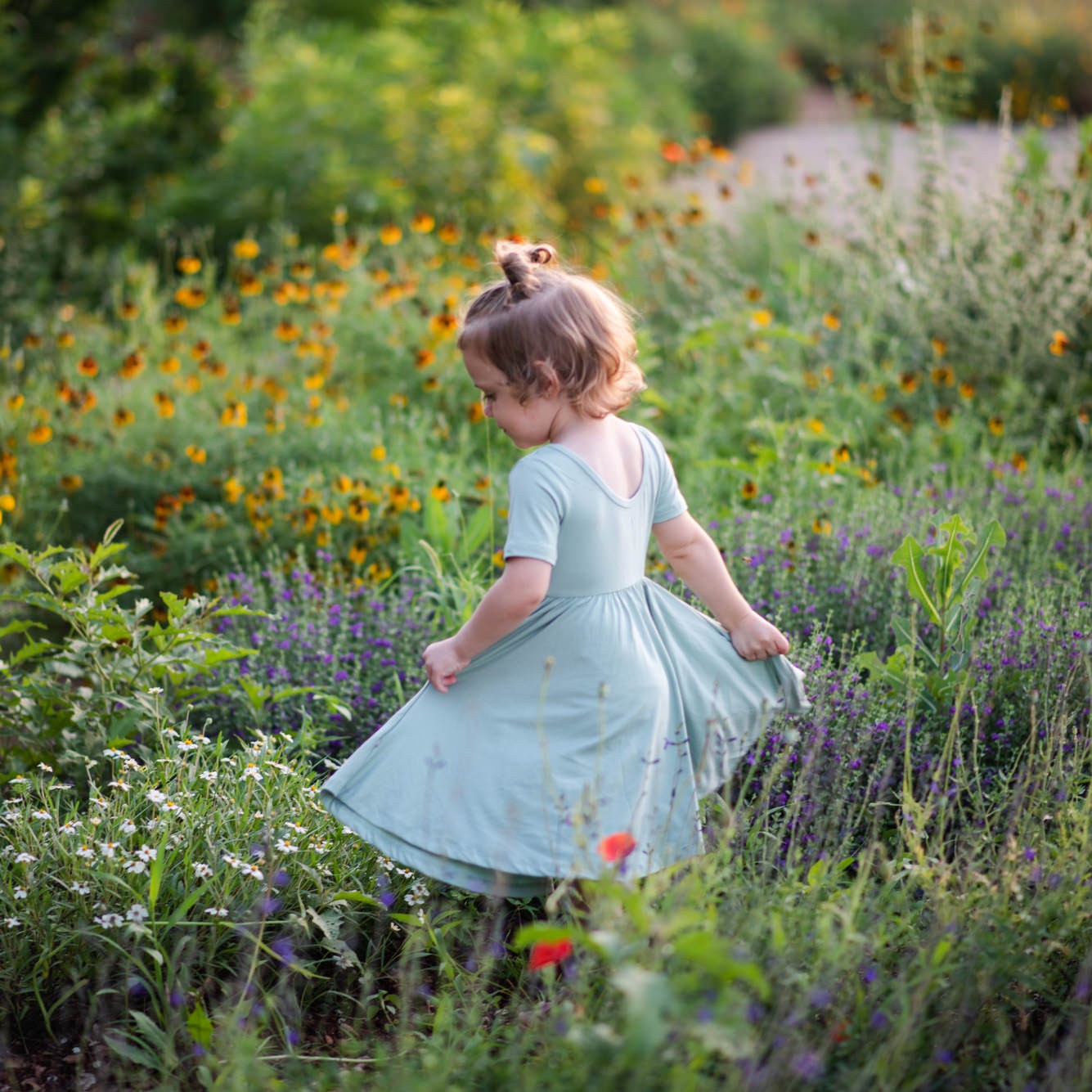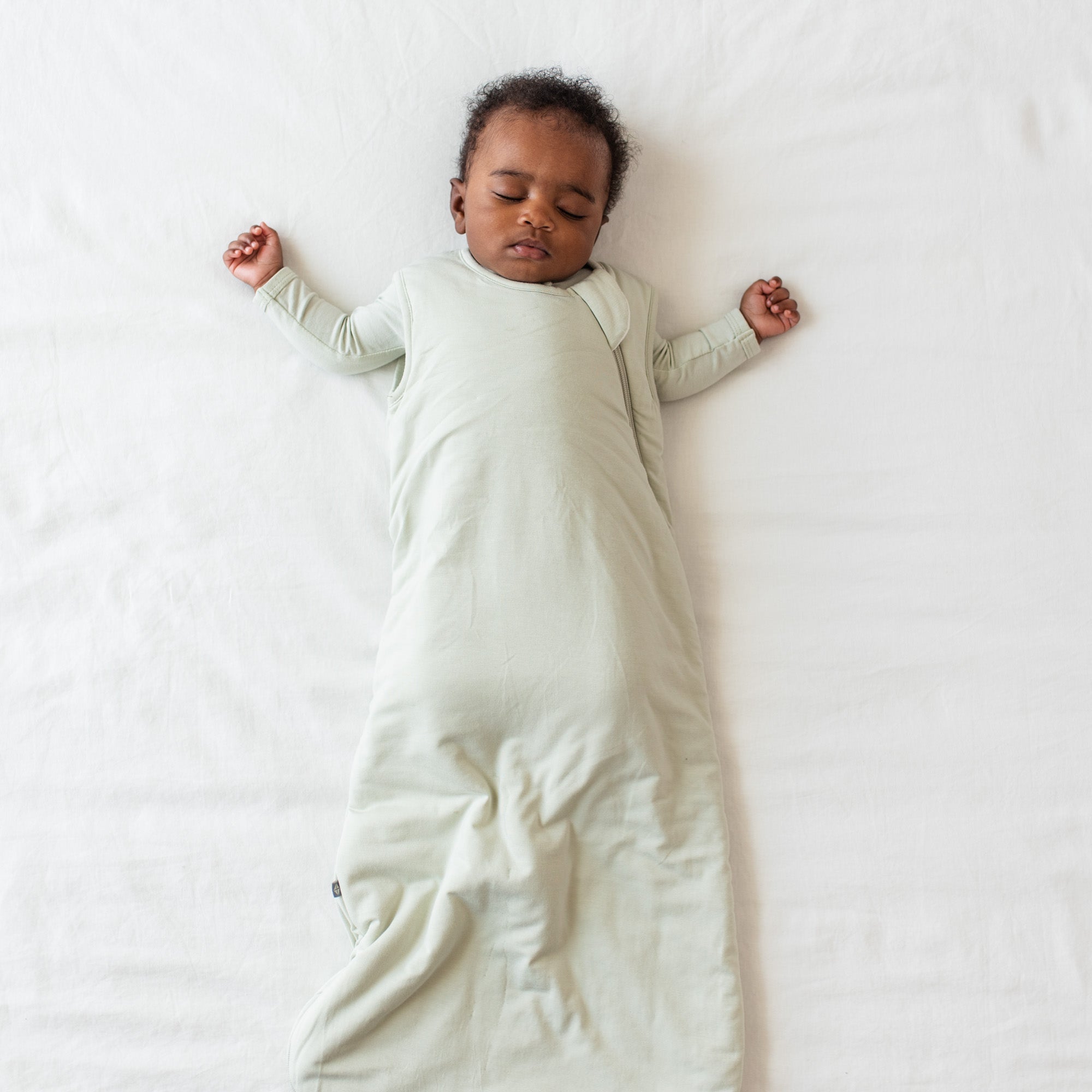Sleep regressions. The bane of every parent’s existence. Once your baby is out of the so-called fourth trimester, you may begin to feel like you’re getting into the groove of things. Finally, right? Your little one has just started linking sleep cycles and your own sleep has improved as a result. Just when you think, Okay, I can do this, BAM! The 4-month sleep regression hits you like a sack of bricks from left field. Not only is it discouraging, it feels like all the progress you’ve made in those first few months has gone completely out the window. When you turn to Google for answers and frantically search baby sleep regression, you have the pleasure of discovering that, yes, not only is your baby going through one, there are more to follow. Way more. Way, way more.
But, worry not. Sleep regressions are a completely normal part of your child’s development, and learning all about what they are, why they happen, and how to handle them are a great way to shift your perspective. Don’t look at them as a regression so much as a progression. A sleep regression is a sign that your baby is on track for proper development, so it really is a good thing. And the best part? It will pass. We promise.

So, what are sleep regressions?
A sleep regression is a temporary setback from your baby’s normal (good) sleep habits. It may cause your baby to be extra fussy when settling down to sleep, more night wakings, and shorter naps. It can last 2 to 4 weeks, and you can expect your child to be more fussy and clingy during this period.
Why do they happen?
The reason that your baby’s sleep patterns shift so much during the first few years of life is because of the rapid and drastic changes their brain undergoes. Your baby learns a lot of new skills during this early age and their brain evolves as they learn to adapt to their environment. In the first two years, your little one will be going through a lot of changes such as teething, growth spurts, and new skills like sitting, crawling, and walking, and their sleep patterns will reflect that.
What ages do they occur?
While this really does vary from baby to baby, the most common ages for sleep regressions to occur are:
- 4 months: The 4-month sleep regression is often the most difficult for parents because it is the first, and can technically occur anytime between 3 to 6 months of age. At this age, your baby’s sleep cycle matures into the one that adults have. Babies begin to produce melatonin, which helps us regulate our sleep-wake cycle. This huge shift introduces additional cycles of light and deep sleep, meaning your baby fully wakes in-between cycles and needs assistance in falling back to sleep. This period of wakefulness is frustrating and challenging for all parents, but it’s important to remember that your baby’s sleep disruptions are caused by development, rather than an actual regression.
- 8 months: The 8-month may occur as late as 10 months for some babies, but it is caused by the changes in physical and cognitive development. At this age, your baby is practicing sitting, crawling, standing, and absorbing language. That’s a whole lot of learning that your little one is doing all at once. This is a huge change and your baby may be more interested in standing up in the crib than sleeping. If your little one has not learned to sit back down, this presents a whole new challenge of you having to physically lay your baby back down for sleep. Your baby may also be transitioning from 3 to 2 naps at this age, and the change in sleep needs causes a disruption to normal sleep patterns.
- 12 months: This particular sleep regression can look like nap refusal, particularly the second nap. It’s easy to mistake this regression as a change in sleep needs, but it may not yet be time to drop a nap. Most babies will return to taking 2 naps after a week or two, before eventually transitioning to 1 nap in a few months. This sleep regression can also be caused by more physical and cognitive changes, such as learning to walk or babbling/talking more.
- 18 months: Unlike the other sleep regressions that had much to do with physical development, this one is also marked by something new: discipline and independence. Your little one is trying to master language, may also be experiencing separation anxiety, and also learning to run and jump. By now, most will have transitioned to only 1 nap, which can also throw a wrench in sleep habits.
- 24 months: We know what you’re thinking—another one? Yup, but here’s the good news: this is the last official regression you have to deal with. There’s certainly something to celebrate! Your toddler may suddenly be waking in the night, resisting naps, or skipping them altogether. Why is this happening? At 2 years old, your child may be going through significant life changes, such as potty-training, moving from a crib to a bed, etc. Other things like teething (molars are particularly difficult), nightmares, fear of the dark, etc. can come into play and contribute to long, restless nights.
How should I handle a sleep regression?
Sleep regressions are difficult and, unfortunately, inevitable. Rather than trying to fix it, per se, there are things you can do to make the regressions just a little bit easier for both you and your child.
- Stay consistent and keep to your routine as best as you can. While everything is changing in your child’s world, we want to be the calm to their chaos.
- Keep the routine calming and add more wind-down time if they’re having trouble transitioning from playing to sleeping.
- Maintain your sleep environment (dark, cool, and use white noise) and use a sleep bag as a sleep cue.
- Comfort, soothe, and meet them where they’re at. Follow your instincts on this one. Some parents prefer to continue sleep training through regressions, whereas others do not. No matter what you choose to do, an attentive, loving parent is really all your child needs.
- Alter your sleep schedule if needed—double check their sleep needs and see if an adjustment is needed.
- Ask for help! You know the saying, It takes a village. It does and this is the time for your village. If you need someone else to handle bedtime for a night, so you can have a break, that’s okay. Whatever it is, ask for it.
How do I build a solid sleep foundation?
How can you have a solid sleep foundation so that sleep regressions are just a blip, if anything to your child’s sleep?
You want to make sure you have:
- Solid sleep routines
- Age appropriate sleep schedule
- A great sleep environment
While adults may tire of daily routine, babies and children are the opposite. They thrive off routine. From establishing circadian rhythm, to creating order in a very chaotic world, to grasping object permanence, routines help your baby comprehend new concepts. They help insulate your child from big, unexpected changes and can reduce stress in those situations. Bedtime really is no different. If you establish a solid bedtime routine that consists of bath, book, cuddling, and zipping your baby into a sleep suit, your little one understands the sequence of events and associates this with time to go to sleep.
When sleep regressions shake everything up, continuing your bedtime routine provides feelings of safety and comfort to your child. Eventually, whatever is causing the sleep disruption will pass, and the routine will be just as solid as ever. This helps your child fall asleep on their own in their sleep space. This also makes it more likely for them to return to sleep on their own, thus disrupting their sleep less during regressions. You can refer to this guide to sleep training for more information.

Every child goes through their sleep regressions differently. Your friend may have hardly noticed that her baby was going through a regression, whereas you may feel like your entire world has turned upside down. Sleep is directly correlated to mental wellbeing, and when your baby is getting less sleep, you are too. This may cause crankiness for both of you, and it’s okay to feel frustrated and discouraged. Remember that every baby is different, so comparing yours to another’s will only exacerbate the feeling that you’re doing something wrong. You’re not. Sleep regressions are an integral piece of your child’s development and a sure sign that your baby is growing up and learning all the skills to achieve independence!





















